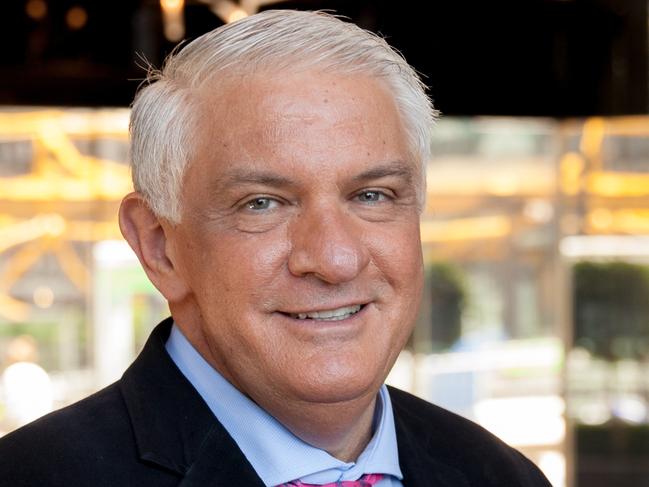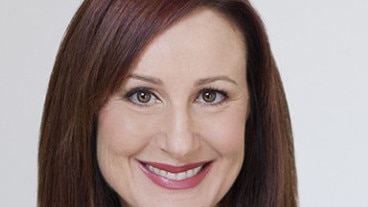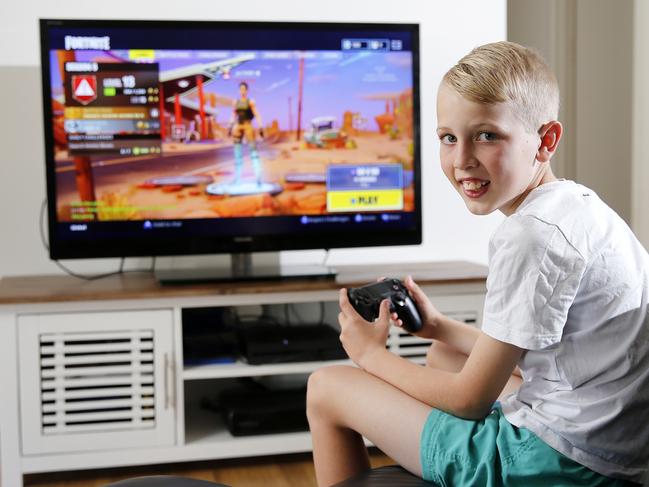Parents and schools locked in fight against phenomenal Fortnite
PARENTS and schools are struggling to manage the video-game phenomenon Fortnite, which is being linked to behavioural changes in kids as young as 5 and 6 who become hooked on the multi-player battle craze sweeping the globe.
QLD News
Don't miss out on the headlines from QLD News. Followed categories will be added to My News.
- How to wean your kids off Fortnite
- Parents paying for Fortnite tutors
- The new game fad driving us crazy
- The real danger lurking in Fortnite
PARENTS and schools are struggling to manage the video-game phenomenon Fortnite, which is being linked to behavioural changes and aggressive outbursts in kids who become hooked on the multi-player battle craze.
Queensland primary schools are now complaining of an explosion in the number of kids – some as young as 5 and 6 – who are coming to school talking about the hours they spent playing the game the night before.
Worried parents have told The Sunday Mail that Fortnite has triggered uncharacteristically aggressive and violent outbursts from their children, as well as sparked family conflict when requests are made to turn the cartoon-style shooting game off.
Leading cyber safety expert and educator Susan McLean said Fortnite had the potential to take over some children, and primary school kids should not be allowed to play it.
“It’s a kill-to-win game and it is absolutely not suitable for anyone in primary school,” Ms McLean said.
“I get emails every week about schools in despair because they are witnessing violent behaviour and language in the acting out of the game.’’

Child and adolescent psychologist Michael Carr-Gregg said he had “never seen a game so popular”.
He said schools had contacted him, seeking advice because fights had erupted in class over the online battle clash.
Dr Carr-Gregg said the secret to Fortnite’s unrivalled popularity was that it was free, available on both devices and video game consoles, and cleverly combined the best elements of shooter games, social media, and building and strategising games.
Australia’s eSafety Commissioner Julie Inman Grant said her research showed about 60 per cent of young Australians used multi-player video-games like Fortnite.
More alarming, still, is that about 200,000 kids across the country are experiencing in-game bullying.
Ms Inman Grant said setting boundaries and mitigating the addictive nature of technology had become “the parenting challenge of our time”.
Brad Marshall, the director of the Internet Addiction Clinic, said his centre was now getting hundreds of referrals each year to see children who had become addicted to the internet and games like Fortnite, so many that his clinic could not keep up.
“We see everything from kids who throw a little tantrum to kids who flat out refuse to go to school for months,” Dr Marshall said.

While primary school-aged children might display anger outbursts, by high school, if left unchecked, internet addiction could lead far more serious incidents.
Dr Marshall said he has even been approached by large corporate companies wanting to hold lunchtime seminars to help their staff deal with the issue.
“Their staff are coming in exhausted, having not slept the night before because they can’t get their kids off the internet,” he said.
Clinical psychologist Tania McMahon said games like Fortnite elicited a physical response from young people and adolescents, and delivered the same dopamine rush to the brain as drugs or alcohol, which made them addictive.
“When you play these games, your pupils dilate, your heart rate goes up, your impulse control reduces in the moment,” she said.
“So, if a parent is trying to get their kid to log-off right in the middle of the game, they are encountering a child who is in a heightened state, and that explains why you get angry outbursts,” she said.
Cyber safety expert Leonie Smith said some game developers were actually studying addictive behaviours in humans and trying to implement some of those elements in their products.
“They are studying, for example, gambling trends and they are implementing some of those aspects in games, like the element of almost being able to get up to the next level, and constantly adding new features,” she said.

But Lesley Podesta, chief executive of the Alannah and Madeline Foundation, said it was important for parents not to panic and to remember Fortnite was just another fad.
“This is the next generation of trend after Minecraft and fidget spinners, and just like them, it will have a lifespan.
Jono Nicholas, of Reach Out, said the best thing parents could do was to play the game with their children, so they could understand the risks and appreciate why their child was interested in it.
Jacinta Phillips said she had set out certain rules for her son Cooper to play Fortnite.
“I don’t find the game makes him more aggressive. It’s no different to most other games,” she said.
But Mrs Phillips said she restricted her son’s use of the game to certain times of the day and only if he finished his homework.

WHAT IS FORTNITE?
● A free multiplayer shooter game with bright, cartoon-style graphics in which 100 people drop on a map, dotted with alliterated settlements such as Tilted Towers, Dusty Divot and Loot Lake.
● Players fight to be last person standing and accumulate weapons and resources to build shelter and protect themselves.
● All the while a stormfront closes in, reducing the playable space on the map.
TIPS FOR PARENTS
1. Get to know the game, how to turn off chat functions and how to restrict in-app purchases.
2. Put firm limits on the amount of time kids can play and deduct it from other screen time allowances.
3. Only allow kids to play the game after homework and extra-curricular activities.
4. Watch for behavioural changes such as aggressive or emotional outbursts and enforce a time out from Fortnite for a few days/weeks if these behaviours become apparent.
5. Never allow kids to have a gaming console/device or computer in their bedroom.


